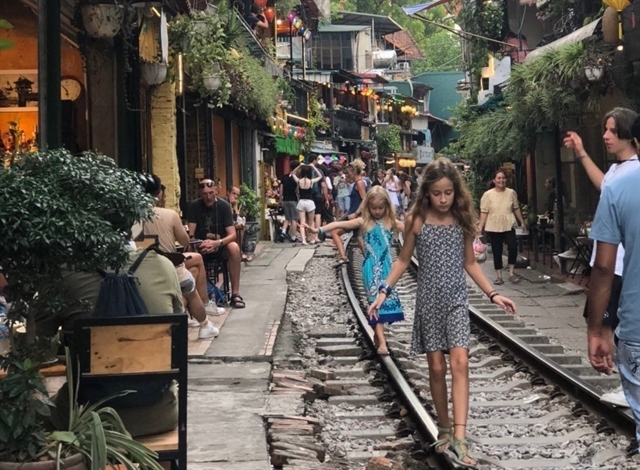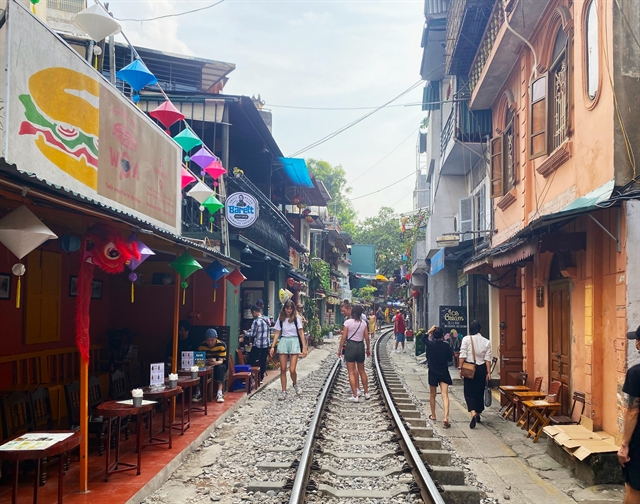 Society
Society

 |
| 'Railway street' is one of the most popular tourist destinations in Hà Nội. — VNA/VNS Photo |
HÀ NỘI — The coffee shops lining 'train street' have been told they must close by September 17 over safety concerns, according to local authorities.
Starting from today, tourists arriving at these spots have been turned away as barriers and signs warning of dangerous areas are put up and local police officers are patrolling.
The sections of track along the Hà Nội-Đồng Đăng railway line, where trains pass close to residential houses, have been popular with tourists for many years, but also pose a major safety hazard.
Nguyễn Anh Quân, Vice Chairman of Hoàn Kiếm District People's Committee, said there are more than 30 household-based coffeeshops along the train track running through Hàng Bông, Cửa Đông, Cửa Nam, Hàng Mã, and Đồng Xuân wards.
All of these businesses are violating railway safety space and accidents are just waiting to happen, Quân remarked.
Most residents lived there before the Law on Road and the Law on Railway Safety came into force in 1990. Relocating households that are too close to the line would take much time and resources, and Hà Nội has still not issued a decision on the matter, Quân said.
Before COVID-19 broke out in early 2020, the district received complaints about the business model there. The official said the authorities deployed information campaigns and fined those who committed offences.
After COVID-19 was under control and the country reopened, these businesses started to pop up again.
"Hoàn Kiếm District has a very clear view, and tourism revenue makes up a considerable amount of our budget, but we do not trade revenue for the safety of the people," Quân said.
"In the immediate future, we will strictly deal with all violations following the law. 100 per cent of households currently doing business in the railway area will have their business registration licences revoked before September 17," he said.
In addition, the authorities will put up barricades, provide information, and prevent people – especially tourists – from entering the area, said Quân.
The district will study more projects associated with this railway to create tourism highlights, but whatever those projects are must still strictly comply with the law and ensure the safety of tourists and people.
Regarding the management of this type of business, the People's Committee of Ba Đình District, where another section of the railway line passes through, said the locality has stepped up efforts to stop the operation of coffee shops that violate the safety space.
According to some longtime residents of Hàng Bông Ward, the "train café street" was a modern invention. This area used to be apartment buildings close to the railway, and over the years, these apartments deteriorated. Some even became places where drug addicts frequented.
After some foreign tourists discovered this place in around 2018, pictures they took widely circulated on the internet.
Quickly catching up with the trend, some households have renovated and repaired the facades to turn them into coffee shops.
By the end of 2019, this special street was forced to shut down due to safety concerns.
In the last months, domestic and foreign tourists, including many young people in the capital city, have visited this 'street' for its uniqueness.
Many people even lie down on the railway tracks to pose for photos.
A few days ago, the Việt Nam Railway Corporation has proposed that filming, photographing and running cafe shops on 'train street' be a fineable offence.
To guarantee security, order and traffic safety, the operator wants local authorities to strictly deal with the sales of cafes, drinks and other goods near the rail line. — VNS




